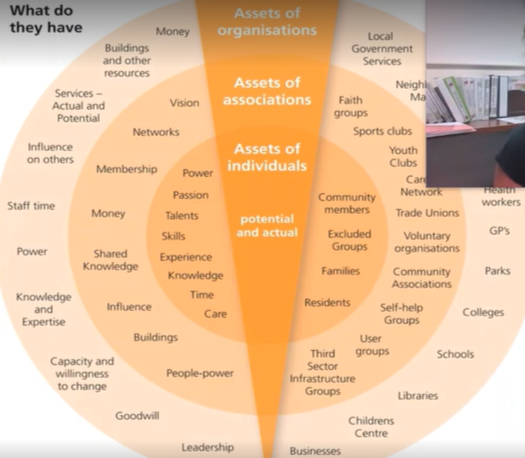Capacity Assessment
1/16
There's no tags or description
Looks like no tags are added yet.
Name | Mastery | Learn | Test | Matching | Spaced |
|---|
No study sessions yet.
17 Terms
What is it
focusing on assets and strengths (resources)
systemic process to collect info about resources
educational activities
recreational activities
resources
experiences
identification and measurement of resources
inherent
potential for developing
Purpose
identify the needs of the priority population
determine the degree to which the needs are being met
Capacity
refers to the resources that can enable a community to be able to take action
individual or collective resources which can enhance health
assets or protective factors
sources of support
resources you can use to carry out your program
defined as individual and collective resources that can be used for health enhancement
identify areas that need enhancement prior to implementing a health education program in order to ensure program sustains long term
examine potential assets at the individual, group, or community levels
measures actual or potential resources that can aid in the maintenance or enhanced of health education programs
Community capacity
to self address social and public health needs as community
identify need
mobilize resources
existing characteristics
Community asset
human resources
leadership
relationships
physical structure
community services
business
community identified assets
operations
infrastrctures
politics
Can be brought together to enhance the experience
ex) people, transportation, etc.
What role do community assets play in program planning
serves as a foundation for community improvement
identifies resources from a community
can use the resources within the community for your project
enables community members to take action
make efforts from effective and longer lasting
because the resources to sustain the program are already there
incorporating strengths of the community build supports
provide a trusted location and resources for your program
Why evaluate capacity
provides opportunity to engage stakeholders/population (prevent learned helplessness)
allows members to identify resources
establish realistic starting point
determine project sustainability
allows planner to learn about the population first hand
When do you identify assets
everyday
need to find assets to mobilize to address community needs
community member’s skills or talents are underutilized
you cannot provide services but need options
the population need encouragement to take pride and responsibility for local concerns and improvements
there is a need to strengthen existing relationships and build new ones to help the community
ideally during assessment
community capacity assessment
easy to develop and implement
provides opportunity for active involvement of residents
process can be repeated at various times
cons
possible surface assessment
residents may be skeptical and want anonymity
Ask yourself
what is the size of the population
what peeps are available
how much time do you have or can allow
what financial resources if any can you count on for support
what do you want to do with the results
Who has the assets
groups, organizations, businesses, associations
larger communities
larger geographical area
can be applied to smaller populations/geographical areas
individuals, peeps, human resources
within the community
working with you
smaller communities/population
smaller geographical areas
can be applied to larger populations/geographical areas

Take an inventory of organization
take inventory of all groups in the community
start with what you know
search resources
make a list
refine list
think of how to best use the resources on the list
itemized catalogue or list of tangible goods or property of the intangible attributes or qualities
Sources of organization/business association asset information
community websites
yellow pages
town directories
list of businesses
list of organizations and institutions
bulletin boards
friends/colleagues/classmates
Individuals
decide on the geographical area to cover
decide how many peeps to ask
depends on what you are looking for
decide this early
draft standard questions to get the info needed
try questions on a sample group
collect the info
What to do with the inventory
publish the assets identified
target an area for development
find ways to bring the organizations together to learn about each other, and to inform the community
publicize the assets to attract new opportunities to the community
create a school curriculum to teach local students about the assts
builds community pride and increases health
create a community coordinator
track asset use in the community
set up a skill exchange program
set up a system to review assets
Call you into action
create the inventory
what is available for you to use
research population
know how they live, breath, eat, sleep
know why they make the decisions they do
what in their community are they proud of